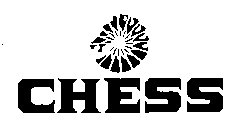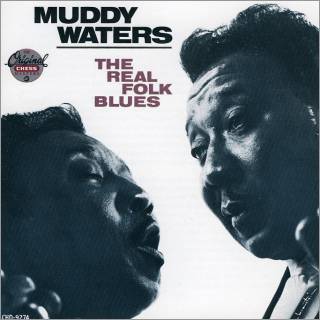Related Research Articles

Muddy Waters (1913–1983) was an American blues artist who is considered a pioneer of the electric Chicago blues and a major influence on the development of blues and rock music. He popularized several early Delta blues songs, such as "Rollin' and Tumblin'", "Walkin' Blues", and "Baby, Please Don't Go", and recorded songs that went on to become blues standards, including "Hoochie Coochie Man", "Mannish Boy", and "Got My Mojo Working". During his recording career from 1941 to 1981, he recorded primarily for two record companies, Aristocrat/Chess and Blue Sky; they issued 62 singles and 13 studio albums.

Chester Arthur Burnett, better known by his stage name Howlin' Wolf, was an American blues singer and guitarist. He was at the forefront of transforming acoustic Delta blues into electric Chicago blues, and over a four-decade career, recorded blues, rhythm and blues, rock and roll, and psychedelic rock. He is regarded as one of the most influential blues musicians of all time.
Chicago blues is a form of blues music that developed in Chicago, Illinois. It is based on earlier blues idioms, such as Delta blues, but is performed in an urban style. It developed alongside the Great Migration of African Americans of the first half of the twentieth century. Key features that distinguish Chicago blues from the earlier traditions, such as Delta blues, is the prominent use of electrified instruments, especially the electric guitar, and especially the use of electronic effects such as distortion and overdrive.

Chess Records was an American record company established in 1950 in Chicago, specializing in blues and rhythm and blues. It was the successor to Aristocrat Records, founded in 1947. It expanded into soul music, gospel music, early rock and roll, and jazz and comedy recordings, released on the Chess and its subsidiary labels Checker and Argo/Cadet. The Chess catalogue is owned by Universal Music Group and managed by Geffen Records and Universal Music Enterprises.

Alex or Aleck Miller, known later in his career as Sonny Boy Williamson, was an American blues harmonica player, singer and songwriter. He was an early and influential blues harp stylist who recorded successfully in the 1950s and 1960s. Miller used various names, including Rice Miller and Little Boy Blue, before calling himself Sonny Boy Williamson, which was also the name of a popular Chicago blues singer and harmonica player. To distinguish the two, Miller has been referred to as Sonny Boy Williamson II.
The American Folk Blues Festival was a music festival that toured Europe as an annual event for several years beginning in 1962. It introduced audiences in Europe, including the UK, to leading blues performers of the day such as Muddy Waters, Howlin' Wolf, John Lee Hooker and Sonny Boy Williamson, most of whom had never previously performed outside the US. The tours attracted substantial media coverage, including TV shows, and contributed to the growth of the audience for blues music in Europe.

Philip Upchurch is an American jazz and blues guitarist and bassist.
"One Way Out" is a blues song that was recorded in the early 1960s by both Sonny Boy Williamson II and Elmore James. A reworking of the song by G. L. Crockett, titled "It's a Man Down Here", appeared on the Billboard record charts in 1965. In 1971, the Allman Brothers Band recorded an updated live version of the song, which was included on their popular Eat a Peach album (1972).

Frederick Below Jr. was an American blues drummer who worked with Little Walter and Chess Records in the 1950s. According to Tony Russell, Below was a creator of much of the rhythmic structure of Chicago blues, especially its backbeat. He was the drummer on Chuck Berry's song "Johnny B. Goode". He also recorded with J. B. Lenoir.

Luther Tucker was an American blues guitarist.
Joseph Leon "Jody" Williams was an American blues guitarist and singer. His singular guitar playing, marked by flamboyant string-bending, imaginative chord voicings and a distinctive tone, was influential in the Chicago blues scene of the 1950s.
Otis "Big Smokey" Smothers was a Chicago blues guitarist and singer. He was a member of Howlin' Wolf's backing band and worked with Muddy Waters, Jimmy Rogers, Bo Diddley, Ike Turner, J. T. Brown, Freddie King, Little Johnny Jones, Little Walter, and Willie Dixon. His younger brother, Abe, was the bluesman Little Smokey Smothers, with whom he is sometimes confused.
"Chicago" Bob Nelson was an American blues musician.
Sammy David Lawhorn was an American Chicago blues guitarist, best known as a member of Muddy Waters's band. He also accompanied many other blues musicians, including Otis Spann, Willie Cobbs, Eddie Boyd, Roy Brown, Big Mama Thornton, John Lee Hooker, James Cotton and Junior Wells.

The Real Folk Blues is a 1965 compilation album of Muddy Waters recordings, released on the Chess record label in January 1965. The album was the first release of The Real Folk Blues series and has since been re-released in multiple formats. The album features some of Waters' first recordings.
"Sugar Mama" or "Sugar Mama Blues" is a blues standard. Called a "tautly powerful slow blues" by music journalist Charles Shaar Murray, it has been recorded by numerous artists, including early Chicago bluesmen Tampa Red, Sonny Boy Williamson I, and Tommy McClennan. John Lee Hooker and Howlin' Wolf later adapted "Sugar Mama" for electric blues and rock group Led Zeppelin reworked it during early recording sessions.
Eddie King was an American Chicago blues guitarist, singer and songwriter. Living Blues magazine stated that "King is a potent singer and player with a raw, gospel-tinged voice and an aggressive, thick-toned guitar sound". He was noted as creating a "straightforward style, after Freddie King and Little Milton".
Johnny "Big Moose" Walker was an American Chicago blues and electric blues pianist and organist. He worked with many blues musicians, including Ike Turner, Sonny Boy Williamson II, Lowell Fulson, Choker Campbell, Elmore James, Earl Hooker, Muddy Waters, Otis Spann, Sunnyland Slim, Jimmy Dawkins and Son Seals.

Jeffrey M. Carp was an American blues harmonica player. He was best known for his work with Muddy Waters, John Lee Hooker, and Howlin' Wolf. He played harmonica on numerous charting blues albums. He was also for a period of time, a side man in Earl Hooker's band.

More Real Folk Blues is an album compiling singles recorded by blues musician Muddy Waters between 1948 and 1953 that was released by the Chess label in 1967.
References
- ↑ Cub Koda. "The Real Folk Blues - Muddy Waters | Songs, Reviews, Credits". AllMusic . Retrieved 2016-01-19.
- ↑ "Home". Sonnyboy.com. Retrieved 2016-01-19.
- ↑ Stephen Cook. "The Real Folk Blues - Sonny Boy Williamson II | Songs, Reviews, Credits". AllMusic . Retrieved 2016-01-19.
- ↑ "More Real Folk Blues - Sonny Boy Williamson II | Songs, Reviews, Credits". AllMusic. 1960-01-30. Retrieved 2016-01-19.
- ↑ Cub Koda. "More Real Folk Blues - Muddy Waters | Songs, Reviews, Credits". AllMusic . Retrieved 2016-01-19.
- ↑ Richie Unterberger. "The Real Folk Blues/More Real Folk Blues - Sonny Boy Williamson II | Songs, Reviews, Credits". AllMusic . Retrieved 2016-01-19.